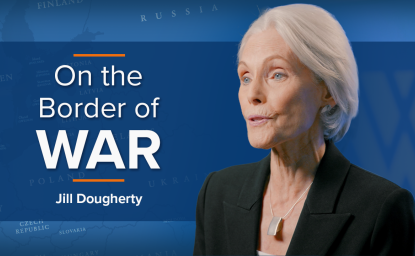Pursuing bin Laden
More than three years after 9/11, Osama bin Laden remains at large. Former Congressman and Vice-Chair of the 9/11 Commission Lee Hamilton discusses the importance of capturing or killing bin Laden.
More than three years after 9/11, Osama bin Laden remains at large. Former Congressman and Vice-Chair of the 9/11 Commission Lee Hamilton discusses the importance of capturing or killing bin Laden.
Where is Osama bin Laden? We have heard from him via video and audiotape. But despite one of the most aggressive manhunts in history, his capture has proven elusive.
The most likely answer is Pakistan. Common knowledge places bin Laden near the Afghan border, particularly in Pakistan's northwestern tribal areas. This region presents fertile hiding ground. The terrain is rugged, at turns mountainous or desert. The tribes are often sympathetic to bin Laden and his Islamist cause, and hostile to the U.S. and Pakistan's President, Pervez Musharraf. Many supported the jihad against the Soviet Union in the 1980s, the Taliban in the 1990s, and now al Qaeda's jihad against the United States, and have traditions of hospitality that could compel them to provide bin Laden safe harbor.
Pursuit of bin Laden is further complicated because U.S. intelligence and military resources are now focused on Iraq, and U.S. forces in Afghanistan are restricted from pursuing al Qaeda and Taliban fighters into Pakistan – a restriction imposed by Pakistan that has frustrated troops who have watched the enemy disappear across the border. The CIA has reportedly set up bases within Pakistan to hunt bin Laden, but they are largely dependent upon Pakistanis for support: Americans stand out in northwestern Pakistan, and most locals are not inclined to help.
Understandably, some Americans are asking if Pakistan – which receives billions of dollars in American aid – is doing all it can to capture America's most dangerous adversary. There is no easy solution. For Pakistan, sustained military operations in the border region – or permission to the U.S military to operate within Pakistan – could fuel violence and even rebellion. For the U.S., we are so dependent upon Pakistan for cooperation on a range of issues – Afghanistan, counter-terrorism, counter-proliferation – that it is hard for us to "get tough" with them on the issue of bin Laden.
Given these difficulties, complacency is tempting. But simply learning to live with a fugitive bin Laden is unacceptable. His freedom is a blow to U.S. credibility and a boost to al Qaeda's propaganda. Killing or capturing bin Laden is necessary to achieve a measure of justice for 9/11 and other terrorist attacks, and is a stated goal of U.S. policy; the prestige of American power is diminished as long as he remains at large. Meanwhile, bin Laden can present himself to his followers and the wider Islamic world as a daring revolutionary, decrying, striking and then defying the world's greatest superpower.
Perhaps more important is bin Laden's role in the global Islamist terrorist movement. Al Qaeda has changed since September 11, 2001. It lacks the fixed command and control system used to carry out the 9/11 attacks, and bin Laden and other leaders have been on the run. But recent tapes demonstrate how bin Laden provides broad strategic guidance to a global decentralized network of terrorist groups. Several months ago, he called for attacks on American allies in the Iraq war, and the Madrid bombings followed. Bin Laden's calls for jihad in Iraq may have fueled the insurgency, or at least aligned al Qaeda's cause with those fighting in Iraq. In recent tapes, bin Laden has singled out the Saudi government for attacks and overthrow, threatening the global oil supply.
Bin Laden has also shifted his tone. He has dropped some of his most inflammatory language about killing all Americans, and has targeted contempt on American policies, such as the Iraq war and support for Israel, which are widely unpopular in the Islamic world. He has also highlighted the strain placed on America's budget and trade deficits, pointing out that the 9/11 attacks cost al Qaeda $500,000, and have led to $500 billion in costs to the U.S.
This shift may be intended to present his case to the world's Muslims – and the West – in a manner that draws wider support from those who oppose American policies, yet resist violence. Bin Ladin may also be laying out a clear strategic vision for his followers: target America and its interests in the Persian Gulf, overthrow the Saudi government, sever the Western alliance, and overextend American economic and military power.
There is no doubt that Osama bin Laden is evil. But we should not underestimate his capabilities because we loathe his intentions; nor should we rest easy, because he clearly maintains the capacity to receive and communicate information. Bin Laden is an effective propagandist, strategist, and leader of men. No doubt, somewhere in the world he is plotting attacks on the United States, and fomenting terrorism and instability around the world. His removal must remain an urgent priority in 2005.



